You are here
Add new comment
While the final preparation for the first taraweeh in 2018 were made, Women’s Social Organisation “Maryam” hosted very special guests at Kyiv Islamic Cultural Centre.
Ms.Munira Subašić, President of the Organisation “Mothers of Srebrenica” (Bosnia and Herzegovina); Ms.Dima Moussa, a Syrian-American lawyer and Human Rights activist (originally from Homs, Syria), and Ms.Nalan Dal, IHH Humanitarian Relief Foundation International Fundraising Manager (Turkey) were on a visit to Ukraine to take part in a number of high-profile events for the Mother's Day, and were kind to meet the activists of WSO “Maryam” and other women interested in hearing their stories.
Ms.Subašić spoke about the horrible massacre of Srebrenica, which happened in July 1995 and took the lives of about 11,000 Bosnian men, women and children (some as young as several days after birth) while about 20,000 of girls and women were brutally raped. Ms.Moussa and Ms.Dal spoke about the current situation in Syria, particularly about almost 7,000 female prisoners tortured and raped in jails by the soldiers of the Assad regime.
Munira Subašić: “Educating our children is our best response to genocide”
I come from Bosnia and Herzegovina, where there was a war in the 1990ies. During three days, over 10,500 people were killed: our children, husbands, elderly people; over 20,000 women were raped. 22 members of my family were killed: my father, my husband, my son, my two sisters, three brothers, my father in law, his two sons and their families. 23 years have passed, but still it hurts. We still have to struggle for the truth to come out, and to bury the bones of our children.
Those criminals — Slobodan [Milošević], his ministers and police — those who tortured our close ones are still walking free, and we still have to face them in the streets.
We erected a big memorial in Srebrenica where over 8,000 people were killed, and it became the first memorial for Muslims to attend as the mass grave of their close ones.. Because in the massacre, they didn’t just kill people and bury them in one place, they divided their victims in several groups and killed them in several locations.
We were there in High Tribunal, the mothers of the victims of Srebrenica. There is 61 court verdicts from different courts regarding that genocide in Srebrenica.
We educated our children of what happened in that genocide. Again, we did our best to make sure that many of our children got their degrees, for educating our youth is actually the best response to what happened in Srebrenica. We didn’t raise them to be overwhelmed with hatred, but we still made sure that they knew and remembered the truth.
Any mother, no matter what her name is, what faith she is (a Muslim, a Serb, a Horvat, a Roma, a Jew) — any mother is just a mother. Being mothers is something that unites us all over the world, we cooperate even with mothers whose children killed our children, because nobody can understand a mother better than another mother. So we, as mothers, let the whole world know of what happened in Srebrenica. We held different demonstrations, wrote letters to the UN Security Council and the USA and to Putin, and to your former President to tell what really happened and make sure the truth prevails. US President Bill Clinton attended the opening of the memorial on the mass grave, and we asked him why his country didn’t react.
The world is full of injustice, so we should pray that God helps us and do our best to prevent something like that from ever happening again. We can’t revive the dead, can’t bring back the ones we’ve lost, but we, the living, should do something. We should build peace for the following generations, based on truth and justice.
Dima Moussa: “Prisoners of the Syrian regime literally die again and again every day”
Thank you all for receiving us, I’m very glad to be among you today. I’m going to start with one thing that Munira Subašić said in the end, which is “Never Again”. This is something we’ve heard after the World War II, after several other wars, after Bosnia - but today what we see in Syria, it keeps on happening again and again. For those of you who maybe don’t know very much what’s going on in Syria: 7 years ago young people took to the streets to ask for freedoms and life with dignity. In response, the Assad regime opened fire on the demonstrators , and started shooting people - young, old, men, women.
This is not something new for Assad regime. I left Syria in 1993 because my family was categorized as opposition, and we had to leave the country to make sure that my father and my mother don’t get detained.
I’m a lawyer, and most of my life I live in the United States, but this is the reason I came and joined to help my friends against the regime.
What has happened over the past 7 years is that we’ve seen the world look at what was happening in Syria, we see things in the media, but nobody really sees what’s happening on the ground. Mostly, all the human rights violations that are happening on the daily basis.
Today, most people, when they hear of Syria, they think about terrorism like ISIS, or they think about refugees. But what they do not think is that half of the population of Syria have been displaced inside their country, and another several million fled outside the country. And most important — the forgotten people who are still detained in Assad prisons, several thousand of them are women, who are only detained because they are activists. Several million people were killed because of bombs and the shelling and different types of weapons, including chemical weapons used by the Assad regime and its allies, Iran and Russia.
The people who were detained literally die again and again every day, because they are being regularly tortured, both physically and psychologically and sexually, and this is against both men and women. So part of the work that we do — I am in the political opposition, but my main goal of being there is not politics, my main goal is to make sure that everyone who is detained in the Syrian prisons can get out well and safe.
I want to tell everybody here that what we want in Syria is peace. None of us wants war, none of us wants to be fighting or kill each other, all we want is freedom, peace, and justice for Syria and everywhere else in the world. Tot a certain extent we’ve given up on the international community and institutions to be able to do something, but we can still count on each other as human beings to advocate for peace and justice for all. And I really hope that one day (maybe next year God willing) that we will host you in Syria.
Nalan Dal: “If there’s a civil War in Syria, why are plenty of other countries somehow involved?”
We want to highlight the issue of women detainees in Syria, this is the major point why I’m in Ukraine this time. We, the women of different countries, from different backgrounds and different religions, only work for one purpose: to help people, especially women, suffering is Syria in the prisons of Assad regime.
One of the members of Women’s Social Organisation “Maryam”, Suzanna Isliamova, took part in the Conscience Convoy that started on the 6 March in Istanbul and travelled to the Hatai city on the Turkey-Syria border for the same purpose. We named it “Conscience Convoy”, because we believe that whoever you are, whatever religion that you belong to, whatever background you come from — unless you have consciousness, you stand nowhere. You have to be a human being with conscience in your heart.
When we look at human history perhaps starting from Bosnia until now (I purposely don’t look back further), we have Bosnia, Kosovo, Chechnya, Iraq, Palestine, Syria, Yemen, Kashmir — I can tell you many more. And we see those natural disasters like tsunami in Japan, tsunami in Indonesia, earthquake in Haiti and earthquake in Pakistan: except for this four major disasters that had natural reasons, all the other disasters that I can count one be one are man-made disasters. But they make it in such a way that we think what they are doing is right. Why invading in a country, why creating a war in this country — they portray it in such a way, that people in the world think: “Oh, they’re doing the right thing!”
For example, when America invaded Iraq, they portrayed that there was no democracy in Iraq, so they were bringing the democracy there. But when they finally left Iraq, they left behind 1,000,000 widows and 5,000,000 orphaned kids.
Take Bosnia, situated in the centre of Europe, so-called Democratic Europe. What happened there was a massacre, mass killings. So unfortunately as Dima said, it continues, as long as we human beings live in this world, we have this excitement of killing and having that interest to get richer, to get somebody’s land - it will continue. We are not the decision-makers at the government level. But we believe that if we are united, and if we create pressure groups, than we can change the politic decision on the higher level in each country.
If we don’t stand in solidarity showing the world that we are strong, the scene will be, that they come and invade a country, kill the people, leave, — and then only we go and try to help whoever survived.
Now, Syria has a combination of Muslims, Christians, Jews, etc, - the majority are Muslims, but there are minorities in there, too. Yet they portray it in such a way as if it was a was between Sunni and Shia Syrians. It is portrayed, than it has nothing to do with the other countries, that it’s a civil war in the country. Ok, if it is a civil war between Sunnis and Shias in Syria, why the hell is Russia there? Why is America there? Why the other countries — Dima can say better, but in total almost 100 countries are somehow involved in Syria.
These are all political things that I don’t want to mention, but I’m trying to make you understand one thing: now I visit the countries, and where I talk about Syria, people may know that, well, Aleppo was under attack last year, and other would remember that some children died recently in Eastern Houta — that’s it! Even if you ask, how many years have passed so far, hardly anyone can remember.
In one of my speeches in South Africa to a big crowd of Muslims, I asked them what was the population of muslims in South Africa. They said it was two million. And I said, “We have more Syrian refugees in Turkey that your overall Muslim population - and you don’t know about that”.
It’s very easy to say that numbers. When I say, three million people ran away from Syria and now living in Turkey, it looks simple. So when I say 6,736 women are held in the Syrian prisons, this number is not very impressing. But when you think, how many more of us are in the prisons of Assad? This is the reason we try to raise awareness, that people should know what is happening actually in Syria.
Unfortunately we, the human beings, love to see blood and pain on the Media… If Israel is bombing Palestine, we remember Palestine; if something is happening in Aleppo, or in East Houta with the children dying, we are awake. But then, for the rest of the time, we are asleep. One of the sisters who was released from the prison of Syria came to the group of sisters who were there to assist her, they were lawyers, and she showed her arms, with her skin sliced on her both hands all the way up. And she told that her whole body was like that. Imagine yourself or myself, if we only stay one night at the prison in the same conditions. We have to do that empathy , put ourselves in her shoes, to think of the trouble and the torture and the suffering they face every single day. Knowing this, it is not possible for you or me, or any woman in the world to sleep peacefully. We want whoever we meet, we want you to become the messengers of this cause and deliver the message to the people on every level in your country. This is the only thing we leave behind wherever we visit.
Last thing I want to say is that nobody can guarantee me or you that we won’t be the next. It is not about thinking “You may be in the same condition, so you should help them”, no! We should help them under any condition, and thus make sure that one day our own situation won’t be the same. May Allah help us, and may He give us the ease and blessings of Ramadan. Sometimes people ask me what dua I have, and I say, I’m on Humanitarian relief sector for years and I wish that there will be a day in the world when there will be no crisis, no war, no disaster — that I’m not needed anymore.
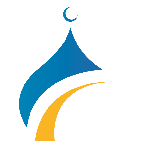
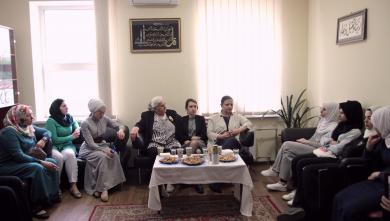



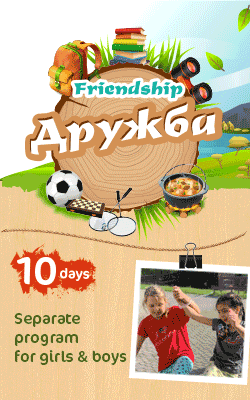
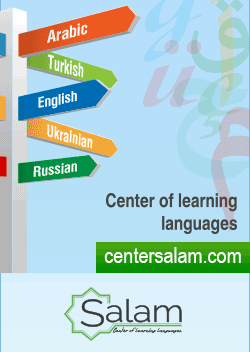






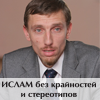
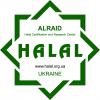
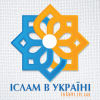



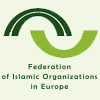
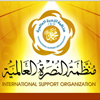
Recent comments